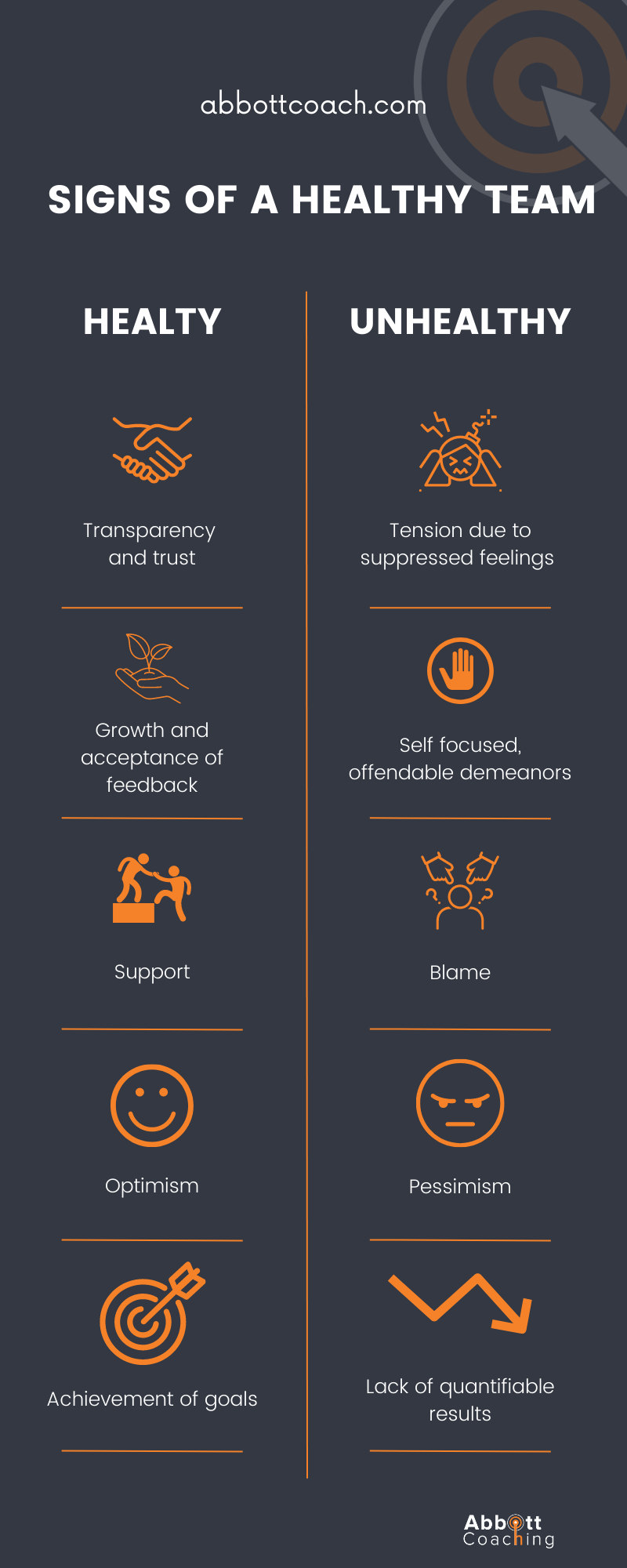Teamwork doesn’t have to mean frustration and contention. You never want any members of your team dreading to work together. Instead, you want them to get excited and know that the job at hand is going to be a fun and fluid experience.
As the leaders in your specific industry, you set the tone for effective communication, valuable debate, and productive teamwork.
Over the years of building my own businesses and helping others align theirs, I’ve gathered some wisdom on what makes a great team.
Use my takeaways to establish a powerhouse team in your own organization.
1. You have to want it.
The old adage “teamwork makes the dream work” is only accomplished if your team walks the walk. You must truly desire a team for the sake of the team — not solely because you think you will get more productivity out of everyone if they get along.
To build cohesion amongst your employees, you must demonstrate the benefits of unity from the top down.
What could your business achieve if everyone encouraged each other toward a common goal? What if everyone actually wanted to fulfill the mission together? This is the type of culture you should aim to create in order to bring those collective results.
2. Your way is not always the right way.
You may be the leader, but sharing with and eliciting ideas from your team helps to balance the overall priorities. Leaders should strive to do more listening than speaking. When in conversations with your team, you find that more than 20-30% of the conversation is filled with you talking, then you are missing the point of having a team. Strive to spend 80% of the conversation asking questions to mine all the gold that your team has to offer. Remember you hired them for what they could bring to the team, let them bring it. Perspectives from all areas of the organization will bring about the best results.
3. They are not out to get you.
Often, we assume that others automatically know what we prefer or how we would do something. But the problem with these assumptions is that, when unmet, we leave ourselves susceptible to the destructive thoughts that our team intended to push our buttons.
The truth is, different approaches aren’t wrong. There is power in all perspectives and work styles — choosing to assume positive intent will preserve you from unnecessary hurt feelings and drama. Often something takes place and we make up the story of what it means. What if we just stopped and looked at only facts vs. our perspective and the story we made up in our heads? Our behavior and response looks a lot different, less emotionally charged, and more conducive to building trust on a team.
4. All styles are important.
Picture a dynamic team of individuals — one is focused on getting the job done, another is determined to perfect every detail, someone else is fixed on meeting everyone’s needs, and lastly, you have another zoned in on optimistic collaboration. (Sounds like a dream team, if you ask me.)
Differing personality types and work approaches can actually be used to your advantage — instead of causing unnecessary clashing.
For instance, if you are primarily concerned about accuracy and perfecting every detail, you may end up spending too much time on the non-essentials (hello, analysis paralysis)! It can be hard to meet deadlines when you feel each step has to be flawless but when you combine one person’s perfectionist tendencies with another’s results-oriented approach, you’ll find the optimal balance.
5. Trusting teams are more productive.
If individuals are afraid to ask for help or expose their weaknesses because of a lack of trust for their team members, they will never perform their best work.
Trust is a crucial component of a successful team. Focus on establishing a humble and collaborative environment that makes trusting as easy as breathing.
In past work culture trends, a sense of competition has been the norm. We create the feeling that if I let anyone know I do not have it all figured out, they will use it against me to get my job. If we are ever going to be able to beat the external competition we must make sure we have a circle of safety internally, so that our team is not spending half their time protecting themselves.
6. Conflict is not a bad word.
Suppressing necessary conversations for the sake of avoiding conflict will always prevent success and growth. It is a misconception to think that embracing conflict will only “stir the pot.” We have to learn to embrace conflict.
Honest and open communication is essential for a team to get the best ideas on the table. We tend to see conflict as dysfunctional. We are afraid of mean-spirited personal conflict, so we instead choose false harmony where everyone pretends to be in agreement and “get along”. When we have conflict over ideas and get all the opinions on the table we make better decisions and come up with more innovative ideas, there is nothing dysfunctional about the vivacious sharing of thought.
7. Teams are successful when committed.
If a team fakes an agreement to simply wrap up a conversation, the desired outcome will be hard to achieve. It’s essential that there is a united front, even if compromises are necessary, when it comes to working as a successful team.
Remember: team members will likely not pull their own weight, nor give their best effort when they don’t agree to the common goal. Focus on getting the whole team committed before hashing out details. Remember, when everyone is sharing their opinions and perspectives they are more apt to commit to whatever decision is made.
8. Teams are accountable.
We must be able to hold each other accountable to our goals and commitments without expecting the leader to fulfill that role entirely. Teams should be willing to hold one another accountable — without taking offense.
Crystallizing the expectations and goals for your organization will make it simpler for a team to uplift and support each other.
9. Prioritize collective results.
Will Durrant, a famous American philosopher, recognized that a lust for power seemed to motivate all mankind’s actions. He remarked,
“To give life meaning, one must have a purpose larger than self.”
Above all else, the good of the company, the organization, or the team must come before your individual goals. We can never put our need for credit, money, promotion, or experience ahead of the greater good of the team. And, in doing so, you will be the best teammate.
10. Cohesive, healthy teams are fun.
Best of all, the cohesion amongst a team leads to laughter and healthy connection!
Teams that function properly will produce lasting and impactful results — plus, they’ll be enjoyable. These lessons are ones that you can begin to implement within your crew today. And, don’t worry, if you need help, consider scheduling a consultation with me. I’m confident the EOS process and/or the Five Behaviors of a Cohesive Team assessments and workshop will give you all the tools you need to strengthen your business.
If you have not already read the book Five Dysfunctions of a Team by Patrick Lencioni, I recommend adding it to your reading lists.
This book outlines the root causes of politics and dysfunction on the teams where you work and the keys to overcoming them.



